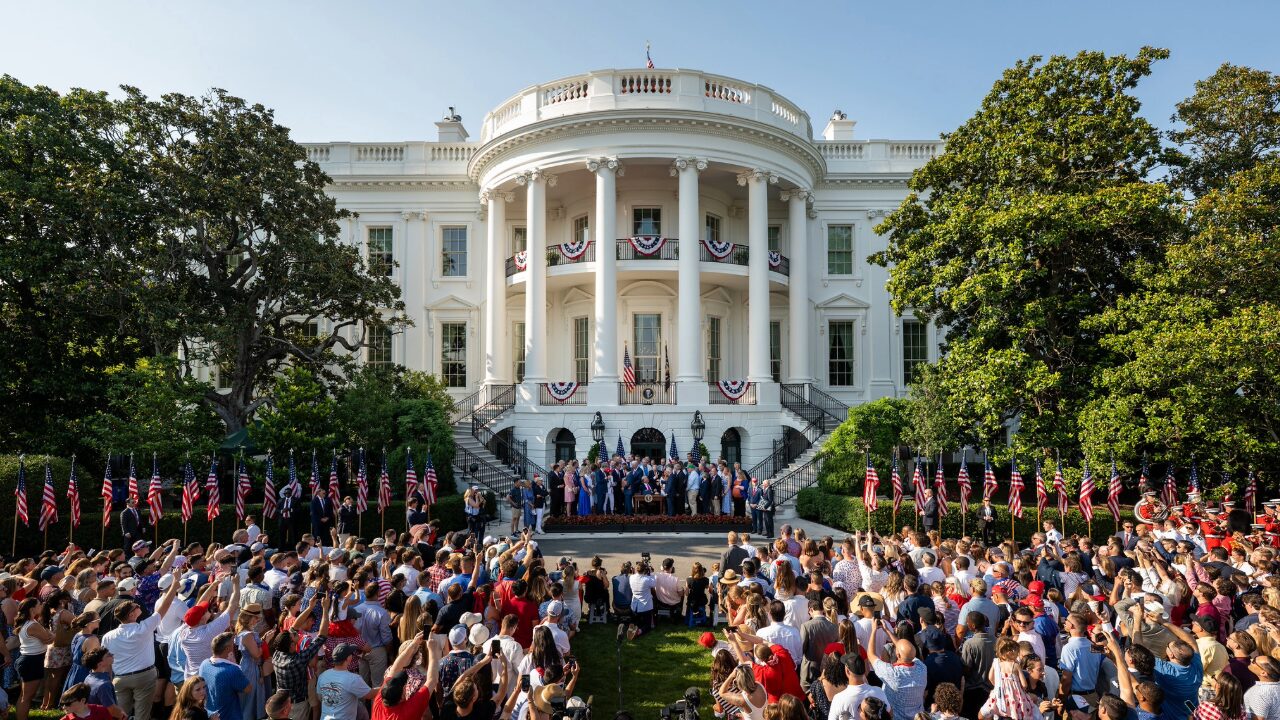Washington, D.C.—With unified control of Washington following the 2024 elections, Republicans entered 2025 with an ambitious agenda—and an appetite to go big. Rather than passing multiple budget reconciliation bills, President Donald Trump insisted on packaging the GOP’s top priorities into a single comprehensive package: the One Big Beautiful Bill. That legislation was signed into law on July 4, 2025.
The bill delivers sweeping tax reform, energy policy changes, and regulatory rollbacks—all with an eye toward the 2026 midterms. For small businesses, including independent lumber and building material dealers, the legislation includes several key victories that ABMA and its members have long championed. Now, with the bill passed and signed, Republicans are turning to implementation and messaging, betting that economic momentum will carry them through 2026.
ABMA-Backed Tax Relief Secured
For ABMA members, the bill represents a major win. Since first releasing its legislative priorities in 2022, ABMA has fought to make critical business tax provisions permanent—and this bill delivers. Among the highlights:
- Permanent 100% bonus depreciation for qualified equipment like trucks and forklifts
- Permanent 20% Qualified Business Income (QBI) deduction
- Restoration of immediate expensing for domestic research and development (R&D)
- Higher Section 179 expensing limits and broader eligibility
- Increased estate tax exemption, now set at $15 million
These provisions, which ABMA raised directly in meetings during Advocacy Day, will provide long-term stability for small and mid-sized businesses across the industry.
Policy Scope: Taxes, Energy, and Border Security
The One Big Beautiful Bill also includes policy changes on immigration, domestic energy production, and regulatory authority. It boosts funding for border security, authorizes new oil and gas leases, and imposes stricter limitations on federal agency rulemaking. Republicans framed the bill as a course correction after what they are describing as overreach by the previous administration.
While some provisions remain controversial—including the repeal of several clean energy tax credits and tighter restrictions on Medicaid—Republicans argue the bill marks a return to growth-oriented policy and national self-reliance.
2026 and Beyond: Strategy in Motion
Looking ahead, the One Big Beautiful Bill is expected to be the centerpiece of GOP messaging in the 2026 midterms. The party is betting on stronger economic performance, lower inflation, and a clearer regulatory environment to resonate with voters. Democrats, meanwhile, have attacked the legislation as favoring the wealthy and stripping health care from vulnerable populations.
For Republicans, the challenge now is to show results. For ABMA, the focus remains on ensuring that implementation reflects the realities of our industry.




